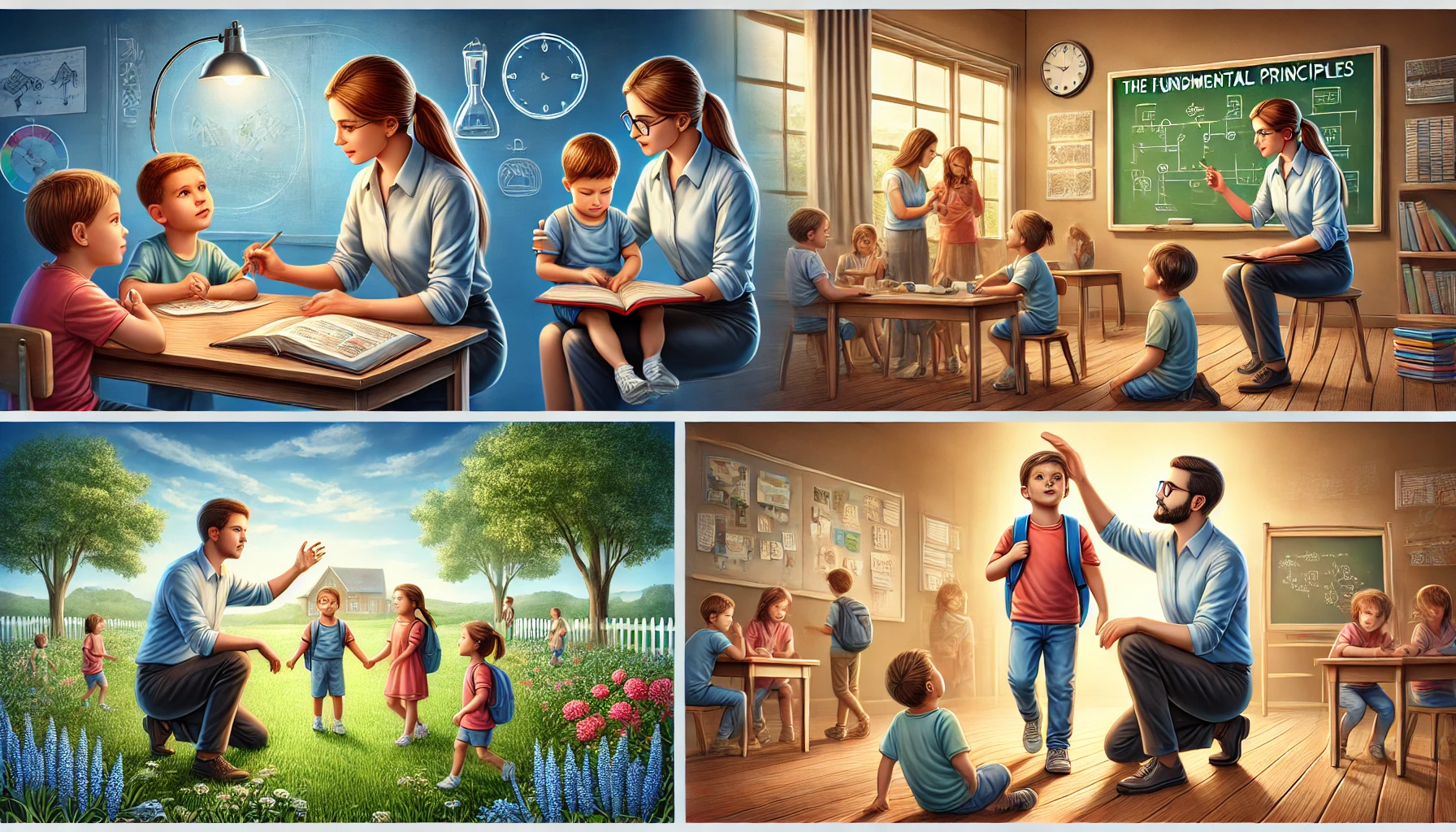
Revolutionizing
Education

Becoming Your
Child's Best Teacher

The Fundamental Principles
for Teaching Children

Subjects We Need
to Teach Our Children

Sharing Lessons
Effectively Among Parents

The True Meaning of
The Education Revolution

Share Your Ideas

Read a visionary story: A Path to a New Era of Growth, Freedom, and Collective Wisdom.
Click above to listen to the text
The Fundamental Principles for Teaching Children

Providing personal attention and real-world experiential learning are the most important and basic elements. On one hand, children pay close attention to real people and their guidance, which sharpens their perception. On the other hand, the tutor understands in real time how the child grasps and maneuvers through the material, allowing the tutor to adjust immediately to ensure the child understands optimally. This dual approach creates an environment where learning is both interactive and highly effective, catering to each child’s individual needs and enhancing their overall educational experience.
Gaining experience in real-world settings allows children to engage with knowledge directly. This hands-on approach provides the most authentic and high-quality information, giving children a deeper and more practical understanding of the world.
The most fundamental principles, real-world experience and individual attention for each child, are impossible to achieve in today’s typical classrooms, which have 15 to 40 students. Limiting class sizes to no more than five children is essential to providing each child with the attention they need and deserve.
Another important principle is to ensure that each child feels they are the most important part of the learning process, and that the world is their playground to explore and experience. In traditional education, one characteristic is to make the child feel small compared to the vast world of knowledge, using this as a starting point to motivate them. This may not be done consciously, but it has serious negative implications for building the child’s confidence. When children constantly feel overshadowed by the immensity of what they don’t know, their self-esteem can suffer, and their willingness to explore and take risks may diminish.
In contrast, the new approach to education focuses on giving individual attention to each child, making them feel that they are the most important. This personalized attention helps to build their confidence and self-worth. The information and tools they acquire through learning are seen as new abilities they are gaining, and the world is providing them with opportunities to grow. This approach not only nurtures their academic skills but also empowers them to believe in their potential, fostering a sense of capability and enthusiasm for lifelong learning. By recognizing and celebrating each child’s unique strengths and progress, this new educational model aims to create a more supportive and encouraging learning environment.
Another important principle is to prioritize achieving goals and developing abilities over merely transmitting information for the sake of passing it on. This principle is especially crucial in the early years of education. During this formative period, cultivating skills and building confidence are far more significant than acquiring specific knowledge. While particular information can be learned later in life, especially in our ever-changing reality, skills and confidence provide the foundation for individuals to tackle any challenge they may face.
While computers and screens are effective for practicing and testing, our primary focus should be on how these tools serve us in the real world. They are, after all, just that—tools to help us interact with the world and connect with others. Real-world experiences and interactions with real people should remain our priority. In our overall plan, it’s vital to find the right balance between screen time and meaningful, face-to-face engagements. The true value of technology lies in how it enhances our connection to the world around us.
By focusing on these foundational elements, children are better equipped to adapt to new situations, think critically, and solve problems effectively. This approach encourages a growth mindset, where the emphasis is on learning how to learn and developing the resilience to persevere through difficulties. In essence, fostering abilities and self-assurance in the early years lays the groundwork for lifelong learning and personal development, preparing children to navigate the complexities of the modern world with confidence and competence.
